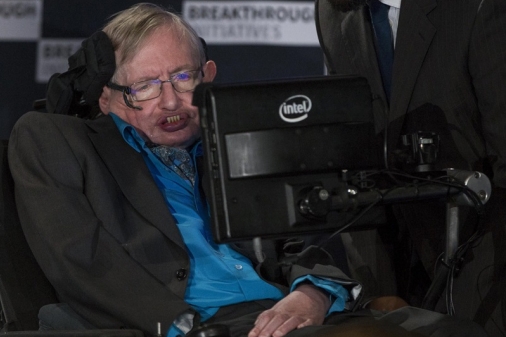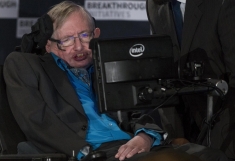
Theoretical physicist Stephen Hawking is warning people that technology and artificial intelligence can take away people's purpose in life and eventually bring about the end of mankind.
"The development of full artificial intelligence could spell the end of the human race," the professor told BBC News.
He acknowledged though that he relies on technology to verbally communicate with people. But while artificial intelligence programs have proven useful for people thus far, there is a huge chance that these would evolve and eventually prove destructive to people.
"It would take off on its own, and re-design itself at an ever increasing rate," he warned. "Humans, who are limited by slow biological evolution, couldn't compete, and would be superseded."
Hawking suffers from a motor neuron disease called amyotrophic lateral sclerosis, rendering him completely paralysed save for some parts of his body. If not for the technology provided by Intel and British company Swiftkey, the brilliant scientist would not have been able to communicate. He relies heavily on predictive text, which allows him to type twice as quickly as before.
"I was finding it very difficult to continue to communicate effectively and so do the things I love to do," Hawking said at a press conference in London, The Guardian reported. "With the improvements made, I am now able to write much faster and that means I can continue to give lectures, write papers and books, and, of course, speak with my family and friends more easily."
Hawking said medicine failed to cure him, and that is why he has to rely on technology to help him communicate and live.
The scientist has often discussed his atheistic beliefs, claiming to trust science more than God. "Before we understood science, it was natural to believe that God created the universe, but now science offers a more convincing explanation," he said.













